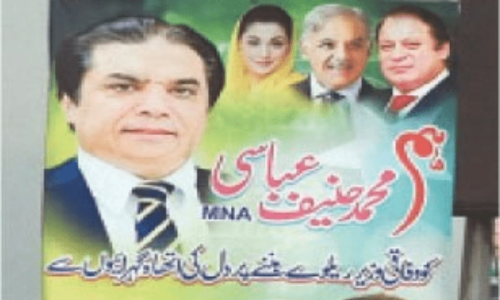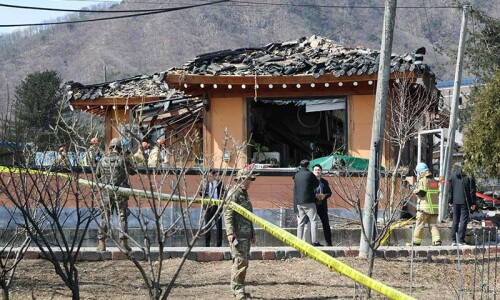ISLAMABAD, Feb 15: The growth in large-scale industrial sector suffered a four per cent decline in the first half of the current fiscal, raising fears of widespread closure of industrial units.
Some two years ago the sector had posted its worst figures in more than a decade.
An official told Dawn that acute energy shortages, low financing and the rising cost of doing business had hurt the competitiveness of the locally-manufactured products.
The World Bank and IMF recently said that Pakistan’s economy was facing difficulties, adding that the global crisis would make matters worse. Massive layoffs, particularly in the textile and electronics sectors, could be expected.
Analysts said worsening macro-economic indicators had served to deepen the crisis. The problem was exacerbated with over 25 per cent inflation, political instability and the government’s inefficient economic management.
The government is yet to take notice of the impending slowdown of the industrial sector, which is particularly severe in sectors like textile and electronics that offer considerable employment opportunities.
Although the government is upbeat about a three per cent growth in the economy, driven mainly by the agriculture sector, it appears to be least bothered about the impending crisis in the industrial sector.
An official said that Pakistan’s industrial policy depended largely on four industries -– automobile, sugar, textile and cement. The government is still pouring in taxpayers’ money in these sectors despite their having reached saturation points.
Data compiled by the Federal Bureau of Statistics showed that cotton yarn production declined by 0.51 per cent, cotton cloth 0.30 per cent and power looms 41.38 per cent during the first half of the current fiscal over last year.
In the electrical/electronics sector, refrigerators recorded a negative growth of 1.18 per cent, deep freezers 23.90 per cent, air conditioners 13.75 per cent, electric bulbs 24.44 per cent, electric tubes 19.56 per cent, electric motors 23.48 per cent, electric meters 12.3 per cent, switch gears 11.3 per cent, electric transformers 4.36 per cent and TV sets 33.99 per cent during the said period.
The output of pig iron declined by 14.93 per cent, billets 47.88 per cent and HR sheet by 28.68 per cent. However, the Pakistan Steel’s coke production increased by 55.54 per cent during the period. The production of vegetable ghee decreased by 13.07 per cent and cooking oil 4.79 per cent.
In the automobile sector, production of buses declined by 45.37 per cent, jeeps and cars 35.37 per cent and motorcycles 15.66 per cent, respectively.
Industrial growth has been shrinking for the past three years which has greatly affected exports, particularly textile and clothing. Its share in revenue generation is also witnessing a negative growth.
















































